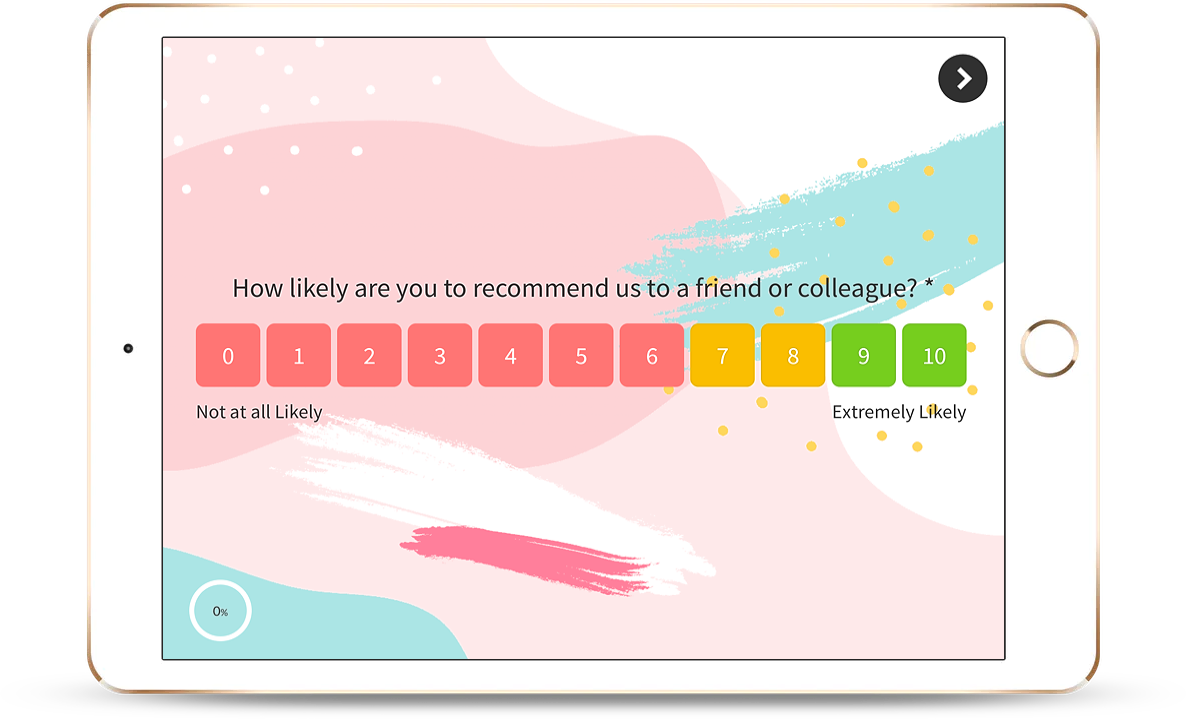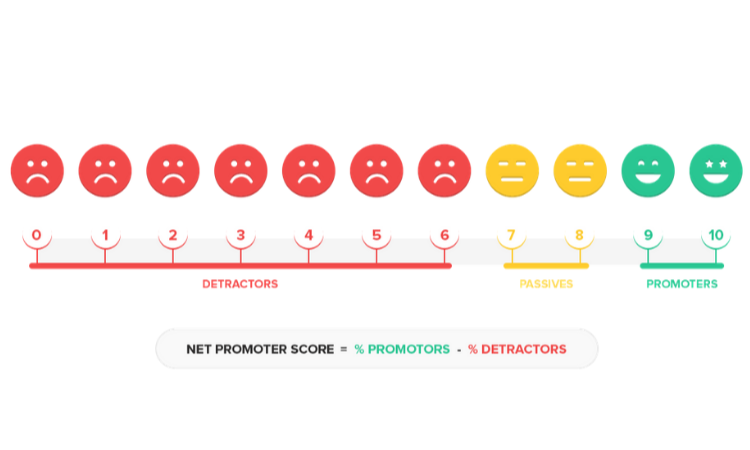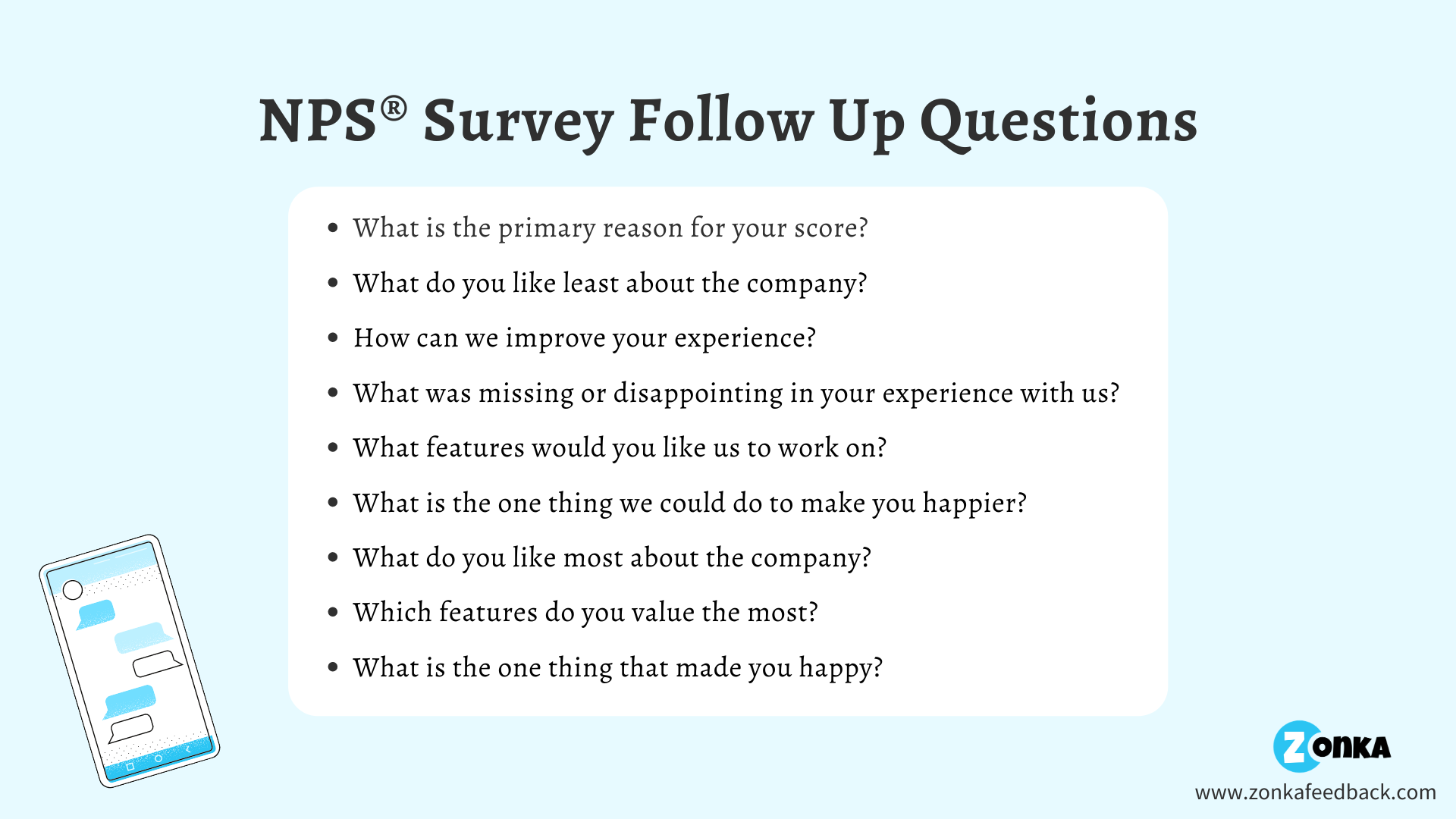Detractors are customers that are, generally speaking, unhappy and dissatisfied with your business. They are likely to not be willing to recommend your business and services to others and in fact, share their disappointment with their friends and family. Because Detractors can be harmful for your business, they require immediate attention.
Measure Customer Loyalty with NPS ❤️
Create NPS surveys, measure customer loyalty, and close the feedback loop with Zonka Feedback.

Nobody in business likes angry, miffed or unhappy customers. Unhappy customers not only reduce or stop doing business with you but also prevent others from dealing with you by sharing their bad experiences with others. That of course, directly harms business, growth and brand image.
So how do you identify the detractors, why should you care about detractors and how do you prevent them from churning?
Identifying Detractors
While any unhappy customer can be identified as a Detractor, in the business scenario, Detractors are generally identified by using NPS Survey. NPS® (Net Promoter Score) is a widely accepted Customer Experience Metric by the companies across the globe that helps measure and determine Customer Loyalty and their likelihood to recommend your brand and business to others. NPS is measured using NPS Survey which ideally contains two questions — an NPS Question followed up an open-ended question.

The NPS Question — How likely are you to recommend our business to a friend or a colleague? — is rated on a scale of 0-10. Based on the responses, the respondents are categorized into 3 categories:
- Promoters: Customers who answer 9-10 on the NPS Survey
- Passives: Customers who answer 7-9 on the NPS Survey
- Detractors: Customers who answer 0-6 on the NPS Survey

As the names suggest, Promoters are happy, satisfied and loyal customers who come back to do business with you and also promote your brand to others. Passives are neutral and indifferent to the brand. If you make an effort, Passives might come back to do business with you, or may go to your competitor if they get a better deal or service. Detractors are the unhappy customers, who are likely to not return to you and may also spread a bad word about your business and services and damage your brand.
Calculating Net Promoter Score is very simple. Subtract the percentage of detractors (customers who rated you 0-6 on NPS Survey) from the percentage of promoters (customers who rated you 9-10 on NPS Survey). The NPS Score is between -100 to +100. A score below 0 indicates that your business has more detractors than promoters, which clearly is a cause of concern and requires immediate attention.
Why dealing with Detractors is very important?
Detractors can cause serious harm to your business. While it's nearly impossible to have all your customers always happy with your business, and sometimes, especially when your detractors are not too many, it may seem like a good idea (easy way out) to not pay much attention to the detractors. But in reality, detractors can cause a lot of harm to your business and no matter how less or more they may be in number, they should always be a priority.
Detractors lead to a decrease in your Sales and Profits
Most angry customers will stop doing business with you - which leads to a direct loss of Sales. Researches suggest that 91% of the customers do not buy again from a company from which they have gone through a poor experience. Acquiring a new customer can cost five times more than retaining an existing customer. Increasing customer retention by 5% can increase profits from 25-95%.
And not only this, they even influence other people who are deciding a brand to do business with. Studies suggest that 74% of consumers agree that word of mouth critically influences their purchasing decision. This proves the direct impact of detractors on your sales and overall business.
Detractors spread bad word of mouth and spoil your brand image
Detractors are louder than promoters. 13% of detractors share their bad experience with around 20 other people, whereas a happy customer or promoter tells only 3 people about a good experience. On the top of it, the damage done by the detractors cannot be easily reversed.
Studies revealed that it takes around 40 positive Customer Experiences to reverse the damage done through a single negative review. You can imagine how detractors can ruin your brand image in the market.
Detractors help your competition succeed
Detractors stop doing business with you but their requirement doesn't eliminate. They generally choose another brand in your competition. Researches reveal that 89% of customers switched to competitor brand due to a bad Customer Experience. This clearly contributes to the business of your competitors.
Detractors are not only the customers who will stop doing business with you but also suggest their friends and family not to choose your brand. This can prove to be hazardous for your business due to the impact of word-of mouth.
Did you know that 92% of customers trust recommendations from friends and 74% of consumers identify word of mouth as a critical influencer in their purchasing decision. And remember that detractors are louder than promoters. You can imagine how a group of people spreading a bad word of mouth about your brand can harm you business.
Moreover, Customer Satisfaction is important to avoid churn, and even if they don't spread any bad word of mouth, churning of customers is itself a loss to your organization. Acquiring a new customer can cost five times more than retaining an existing customer whereas increasing customer retention by 5% can increase profits from 25-95%. Therefore it is crucial to deal with your detractors and improve their Customer Experience.
Identifying Types of Detractors
Let's explore some different types of detractors and how you should deal with them.
1. The Virgins or the First Timers
Those who have just had a single experience with your brand and business and had expectations that you didn't meet. All your new customers come under this category. The reasons for their dissatisfaction may be your salespersons would have set up higher expectations which you may not be able to fulfill.
Do take care of them before the switch to another brand. Firstly, avoid setting unrealistic expectations with any customer. Moreover, reach your first timers just after a purchase or an onboarding process to know their first experience and resolve issues if you find any. Remember that 'first impression is the last impression' and it is important to make it great.
2. The Loyal Ones
There would be some customers who have a relationship with your brand since long but due to one or two poor experiences, they turned into detractors. When they give bad rating to any experience, you must take it seriously as it may be a clear sign of a fall in your quality of products or services.
These customers know your brand very well and what they should expect from it. You must take special care of them. If you don't take them seriously, they would churn.
3. The Promoters turned Detractors
These customers are a step ahead of the previous category. They are the ones who not only have spent time and money on your brand, but also have promoted it through their good word of mouth without any rewards in return. When they come under the category of detractors in a survey, there must be a strong reason for it. They want to tell you what's wrong going on in your business so that you can improve it. You must look into their issues and resolve them as soon as possible.
It would be even better if you take their suggestions through a survey before implementing a change in your business. This will make them feel valued and keep them in the category of promoters.
4. The Professional Ones
These are the customers who have used your products or services to make and share an opinion for their profession. They may be bloggers, YouTubers, journalists, critiques or review writers who give an independent review on various brands of your industry. The Customer Experience they would have will be shared with a large audience and will most likely affect the purchasing decisions of many!
If they come into the category of detractors, it is crucial to reach them, resolve their concerns and change their negative experience into a positive one. Be it buying your product, arising of an issue, or you resolving it; they would share every experience with their audience. So it is important to improve their experience for saving your brand image in the market.
Let's explore some sure shot tips to deal with your detractors in such an effective way that they become promoters.
How to turn Detractors into Promoters?
- Ask Follow up Questions
- Respond them Quickly
- Apologize, Empathize and Investigate the Issues
- Work on Closing the Feedback Loop
- Offer them incentives as a token of apology
Let's learn how you can utilize these tips to convert your detractors into promoters.
1. Ask Follow up Questions
Knowing who are your promoters, passives and detractors is not enough, you need to find out what made the customers become promoters, passives and detractors, respectively. For this, you need to follow the approach of asking follow up questions.
Just after the Ultimate Question of Net Promoter Score, you should ask the customers the reason for their ratings. This should be an open-ended question so as to obtain rich and qualitative data of real customer insights in their own words. This will help you to reach the root cause of their ratings.
This follow-up question is really useful as it helps to know the strengths and weaknesses of your business and then you can think of making changes and improvements in your business.

2. Respond them Quickly
When you get to know about your detractors and their complaints, respond to them right away! You must be proactive in your approach. Reach them, listen to them and initiate work on their feedback.
Inform them that you are working on their feedback and tell them the right time by which you will be able to resolve their issues and concerns.
3. Apologize, Empathize and Investigate the Issues
If some customers are dissatisfied with your brand, apologize for their bad experience they went through with your products and services. Avoid being defensive with them even if you feel that there is no fault of yours.
Rather, try to empathize with them for the poor experience they had with your brand and assure them that you will do improvements in your business. Also, investigate about the issue and get to the touchpoint where the things went wrong so that you can make the things right.
4. Work on Closing the Feedback Loop
Closing the Feedback Loop is very important for your business. Capturing customers' views and opinions and not doing anything about it is one of the biggest blunders you can do! Rather, try to resolve the issues in the best possible way and do whatever it takes to Close the Feedback Loop.
For closing the Customer Feedback loop, involve your teams, assign tasks to them and get the right things one from the right people. Also, always use an effective Customer Feedback software, that helps them to identify your detractors on time and work on their feedback in order to Close the Feedback Loop effectively.
5. Offer them incentives as a token of apology
To go a step ahead, you can also offer them small incentives as a token of apology like small free gifts or a discount on their next purchase. These incentives will facilitate better customer retention, delight your customers and convert your detractors into promoters.

 MS Teams
MS Teams













